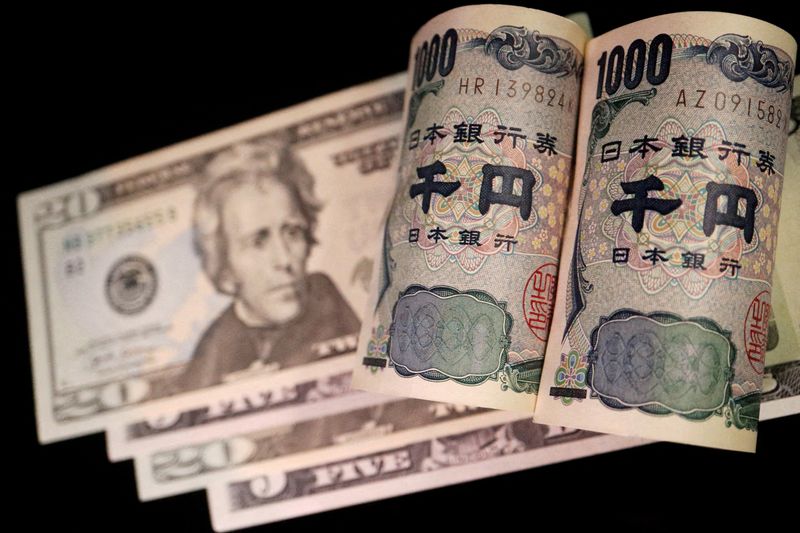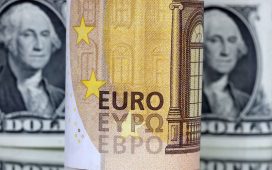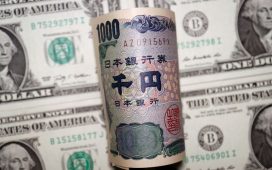By Rae Wee and Alun John
SINGAPORE/LONDON (Reuters) -The held near its highest level in over four months on Wednesday, pinning the yen close to its lowest its decades, though the increased threat of currency intervention by Tokyo capped further declines in the Japanese currency.
The euro was steady at $1.0776 as was the pound at $1.2575, leaving the dollar index, which tracks the unit against six peers, flat on the day at 104.72, having briefly crept above 105 on Tuesday.
Wednesday data showing a surprise fall in euro zone inflation last month, and solidifying the case for the European Central Bank to start lowering borrowing costs, did little to shake the common currency, as markets were already confident of a June rate cut.
The Japanese yen was last at 151.7 per dollar, little recovered from last week’s slump to 34-year lows of 151.975, as the Bank of Japan’s historic policy shift only served to underscore its outlier status.
While the BOJ raised rates for the first time in 17 years, its policymakers’ commitment to go slow on further increases have hammered the yen especially given the still-wide Japan-U.S. yield gap.
Japanese officials have carried on with their efforts to talk up the currency for days, with the threat of an intervention presenting stiff resistance for the U.S. dollar.
“It certainly seems like the market is very fearful of the 152 (yen per dollar) level,” said Jane Foley, head of FX strategy at Rabobank.
She said she was also watching to see whether geopolitical tensions would have an impact.
“There is a feeling from gold and oil that there is a safe haven bid. But the question is why isn’t this affecting the dollar more, because the dollar was off against just about everything yesterday, and could this impact the yen or Swiss franc too?”
The three currencies typically benefit from a flight to safety, but the Swiss franc too is under pressure, trading at its weakest in several months against both the dollar and euro.
is trading at record highs, partly on geopolitical tensions, and oil is at its highest since October. [GOL/] [O/R]
“Just because of the attraction of yields, I would say the dollar will be the more attractive safe haven currency,” Foley added.
The benchmark 10 year U.S. Treasury yield hit a four month high of 4.405% on Tuesday on the back of yet another run of resilient U.S. economic data.
Manufacturing is growing for the first time in 1-1/2 years and in March, there was a greater-than-expected rebound in new orders for U.S.-manufactured goods, while the labour market stayed resilient.
Traders expect about 70 basis points worth of rate cuts by the Federal Reserve this year – less than the central bank’s projections, with the start of an easing cycle fully priced in for July.
Fed officials have also signalled that they are in no rush to ease rates.
The , which has been shaken by a resurgent U.S. dollar, last stood at 7.2357 per dollar in the onshore market, languishing near a 4-1/2-month low hit on Tuesday, despite stronger Chinese manufacturing data, and Wednesday’s service sector release.
Its offshore counterpart softened to 7.2596 per dollar.
“Market participants will still try to push CNH (the ) lower because of the economic headwinds facing the Chinese economy. Fundamentals still suggest that a weaker CNH is likely in the near term,” said Carol Kong, a currency strategist at Commonwealth Bank of Australia.

The Australian and New Zealand dollars, which are often used as liquid proxies for the yuan, have come under pressure
The was down 0.1% at $0.651, while the edged down a whisker to $0.596.











